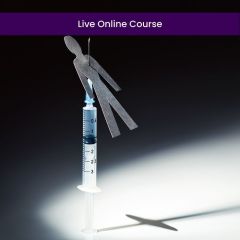A Developmental Perspective on Young Adult Romantic Relationships (1 CE)
Number of Credits: 1
This course is for: Clinical Psychologists, Counselors, and Marriage and Family Therapists
Course By: Xia, M., Fosco, G.M., Lippold, M.A., & Feinberg, M.E. (2018). A developmental perspective on young adult romantic relationships: Examining family and individual factors in adolescence. Journal of Youth and Adolescence, 47, 1499-1516. https://doi.org/10.1007/s10964-018-0815-8
Content By: Julie Laken Harnisher, Ph.D.
Course Description: Developing and maintaining romantic relationships is an important developmental task for young adults. Prior research in this area has documented the link between healthy young adult intimate relationships and factors such as positive psychological adjustment, later relationship success, and later quality of child rearing. The accompanying study addressed a gap in the literature pertaining to familial, as well as individual factors, that impact romantic relationship functioning. The present study investigated the ways in which adolescent interpersonal skills (assertiveness and positive engagement with the family) and family processes (family climate and effective parenting practices) influence the development of young adult romantic relationships. The sample in the accompanying study was drawn from a randomly selected subsample of participants from a larger, longitudinal study, and met inclusion criterion for being involved in a romantic relationship. Resultant statistical analyses provided support for the hypotheses surrounding the influence of adolescent interpersonal skills and family processes on the quality of young adult romantic relationships. Support was also provided for the existence of a reciprocal relationship between family and individual factors. Limitations of the study and directions for further research were discussed.
Learning Objectives:
- Identify two goals of the research study as presented by the researchers.
- Identify the two domains of young adult romantic relationship competence addressed in the study.
- Identify the seven covariates discussed in the study as they pertain to the possible impact of participants’ personal, social, and family-of-origin characteristics on the paths among family processes, interpersonal skills, and romantic relationship outcomes in the model presented.
- Identify five limitations presented within the study and consider the implications for these limitations in conducting future research in this area.
Course Outline:
- Read and understand A developmental perspective on young adult romantic relationships: Examining family and individual factors in adolescence.
- Read the Course Description and Learning Objectives.
- Understand how adolescent interpersonal skills and family processes influence the development of young adult romantic relationships.
- Work through the post-test questions; answer selections should be derived from the accompanying article.
- Return to the referenced article for any missed questions and/or to further understand the influence of adolescent interpersonal skills and family processes on the development of young adult romantic relationships.
Approvals:
| Board Approvals | American Psychological Association (APA), NBCC, Florida Board - Social Work, MFT, Counseling, and Psychology, NYSED - Social Work, MFT and Counseling Only, American Academy of Health Care Providers in the Addictive Disorders |
|---|---|
| CE Format | Online, Text-Based |







